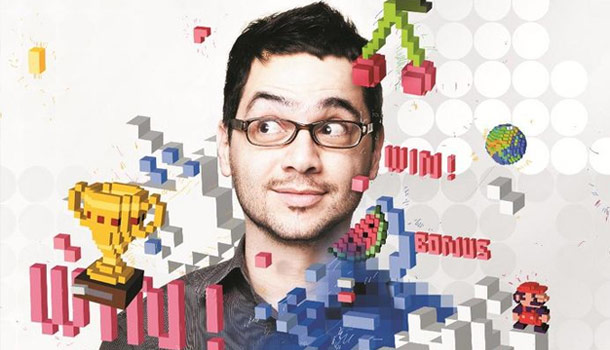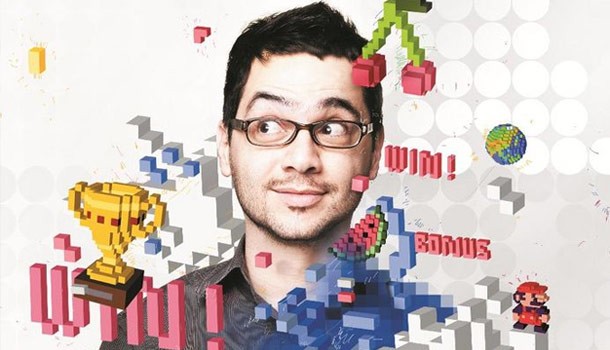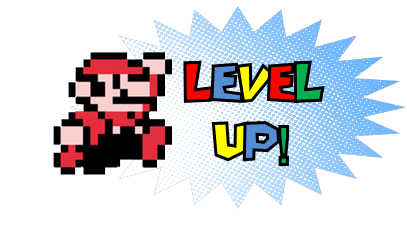Read – The Challenges of Game-Based Learning
While more and more institutions, instructors and students are beginning to see the validity of Game Based Learning there remains many challenges to overcome before this type of learning can become widespread.

1) Combining engaging game design with learning objectives and curriculum:
In order to make Game Based Learning educational and useful in the classroom, the game must meet certain learning outcomes. Adapting the games to these multiple outcomes requires various difficulty levels, numerous “quests or challenges” and an array of steps or levels to “win” the game.
2) Creating a gaming atmosphere that is adapted to all the learners’ ability:
Undoubtedly in today’s classrooms most students will be digital natives born in the era of Internet, cell phones and easily accessible computers. But this still does not apply to all learners nor does it reflect the individual ability and gaming knowledge of each learner. Adapting a game to respond to these differences is difficult.
3) Overcoming the cultural barrier with faculty and parents:
Marketing the idea of Game Based Learning to faculty and especially to parents is not an easy sell. GBL is still stereotyped as gaming or as some parents view it “wasting ones time”. The stigma associated with games and play is difficult to overcome in an educational setting where accountability and results are necessary and required.
4) The cost associated with developing a learning game:
Games require time, knowledge, and money to take shape. Some colleges and universities will not have the resources or time available to them to make educational games. The cost of funding a game coupled with the hardware and software needed to create it, can become too costly for institutions to manage.
5) Game development requires knowledge and certain proficiencies:
Creating a game and playing one are two vastly different tasks. The knowledge and abilities needed to create a game that will meet the needs of various learners, engage the students, respond to curriculum, be ready quickly and be cost effective are vast and difficult to come by (Epper, 2012).
Developing the game itself comes with its’ own set of challenges but there are also other implementation issues that Game Based Learning faces:
- Are computer laboratories available where students can play games?
- Are they appropriately configured?
- Are they available for the extended hours that game play involves?
- Is the right equipment available, such as headphones, speakers, and special consoles?
- Is support available for the game, both technically and in terms of game play?
- Is gaming integrated into the curriculum or just added on? (Oblinger, 2006)
Lastly the challenges for Game Based Learning are not solely in financial, infrastructure or design capabilities but there are also the technical challenge that are faced by the teachers and instructors implementing and monitoring the gaming : The faculty working with the game will need time to develop, implement, evaluate, guide and analyze what and how the students are learning (Van Eck, 2006). This type of evaluation will require the faculty to be trained to understand how the game works, its’ alignment with curricula and how the game can help them in their teachers. Getting everyone “on board” is key to engaging the students and making the game successful.
Bibliography
Epper, R. M. (2012, August 12). Game-Bed Learning: Developing and Institutional Strategy. Educause, pp. 1-3.
Oblinger, D. G. (2006, January 1). Games and Learning: Digital games have the potential to bring play back to the learning experience. Educause Quartely, pp. 1-3.
Van Eck, R. (2006, March/April 1). Digital Game-Based Learning: It’s not just the digital natives that are restless. EDUCAUSE Review, vol. 41, no. 2, pp. 16-30.
Watch – The Challenge of Implementing Games in the Classroom
Comment – Answer the Questions
Please comment below on the following questions:
- If you have tried a Game Based Learning tool before, what are some challenges you have encountered?
- In the future, do you see institutions overcoming these challenges and incorporating more Game Based Learning in their classes?
- As an educator, would you feel comfortable using Game Based Learning as a tool in your classroom? What would you consider might be the #1 challenge with this?


In the near future, I still see GBL as something that would be implemented on an educator-by-educator basis, rather than an institutional initiative. Why? Because while educators may be quick to recognize GBL’s value with immersive, collaborative learning, I doubt parents will be. Gaming was a leisure activity for me and without exposure to forums such as this, I would be very skeptical if my child’s teacher (we’re looking into the future, remember – she will be in JK in 2.5 years) started gaming. There’s lots of literature geared to parents of K-12 students about reducing and monitoring screen time. I think if GBL is to be effective, students really have to get into it and spend time with the game of choice, but parents aren’t necessarily going to allow it. Access to appropriate infrastructure is also a red flag for me. Although things are getting better, there still isn’t a device (desktop, laptop, mobile, or otherwise) for each student in a school, so computer lab time or other technology “sign-outs” are scarce. Would a teacher be really able to justify using this limited access time to play games? It’s hard to say.
As others have mentioned, the biggest challenge to games based learning is the perception by others that the activities are just games. There are clearly many benefits to using games as opportunities for learning, however, there will always be staff and parents that do not agree. It is important to have some sort of data to demonstrate the learning that has taken place.
Institutions may not universally incorporate game based learning as they may feel other learning materials are more appropriate for specific learning outcomes. Topics that are more serious may not connect well to a game based format, for example. I do think that game based learning will become more prevalent in primary and middle school settings, where game based learning could have significant impacts with children.
I definitely feel comfortable using game based learning in my classroom. I am using it right now on “math games Friday.” At this point I have been playing a modified version of the card game War that involves addition, subtraction, multiplication and division. The students are enjoying themselves and we are already seeing students recognize basic facts they have come across previously. It has been a great experience and I am going to purchasing more iPads for my class so that students can take advantage of some of the amazing apps that are available.
Perhaps games that are on apps can be an optional learning resource – perhaps suggested to learners as homework or pre-work.
After all, they can be played alone and don’t need a tutor present.
That would enable each parent to endorse what app/game they would like their child to play and to also meet the cost of the app.
Although the BC Ministry of Education encourages K-12 teachers to integrate technology in their classrooms, I think that very few teachers are using emerging (and older) educational games for learning. Why? Additional challenges include money, technical support, teacher interest, in-house professional development, lagging Internet connectivity, technology inclusiveness (i.e., students with special needs), and so on. As long as there is no real buy in from parents, weak school districts are not going to endorse computerized game-based learning, which means that principals are not going to invest the time, the money, and the training in their schools. And, teachers already spend enough of their own hard-earned money in their classrooms. Lastly, the public school system has yet to invest in the one computer per student initiative in every classroom of every school. So, I do not think that computerized game-based learning will come to fruition in its entirety any time soon.